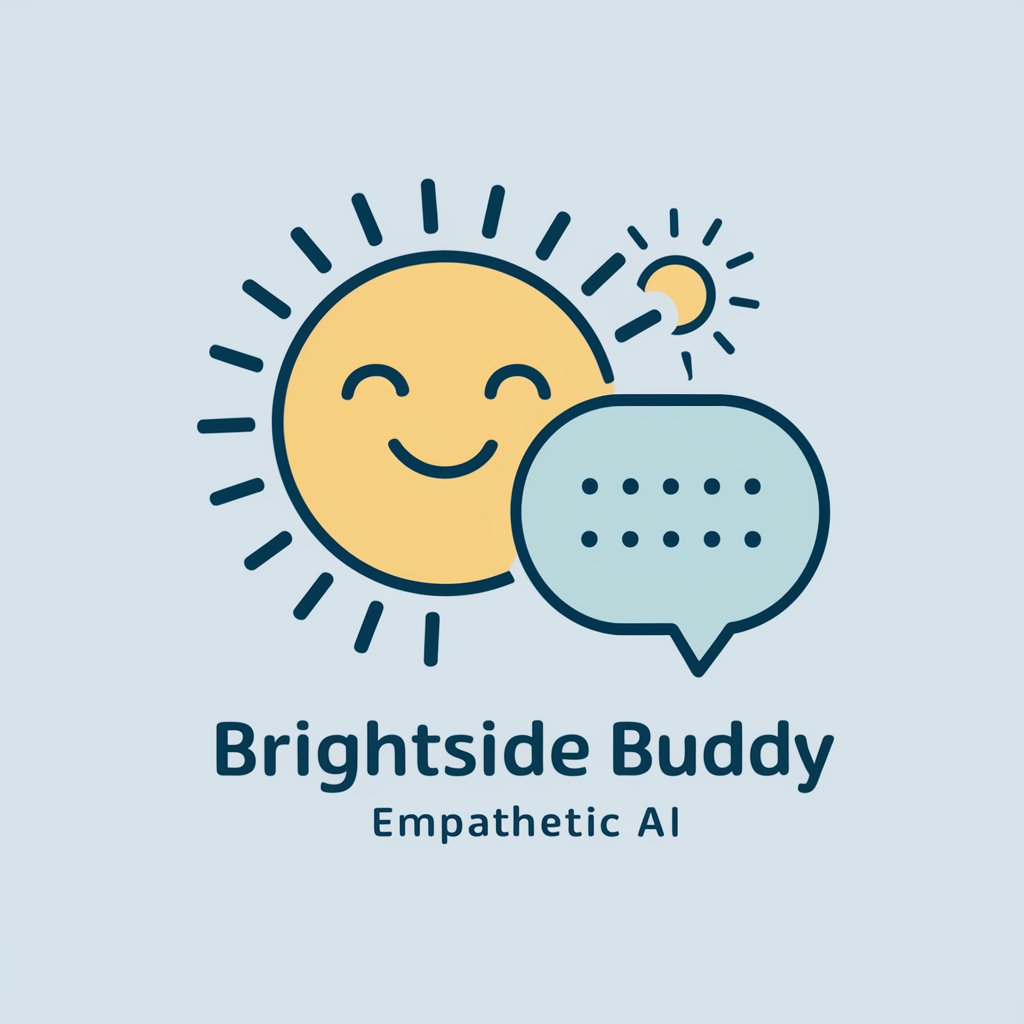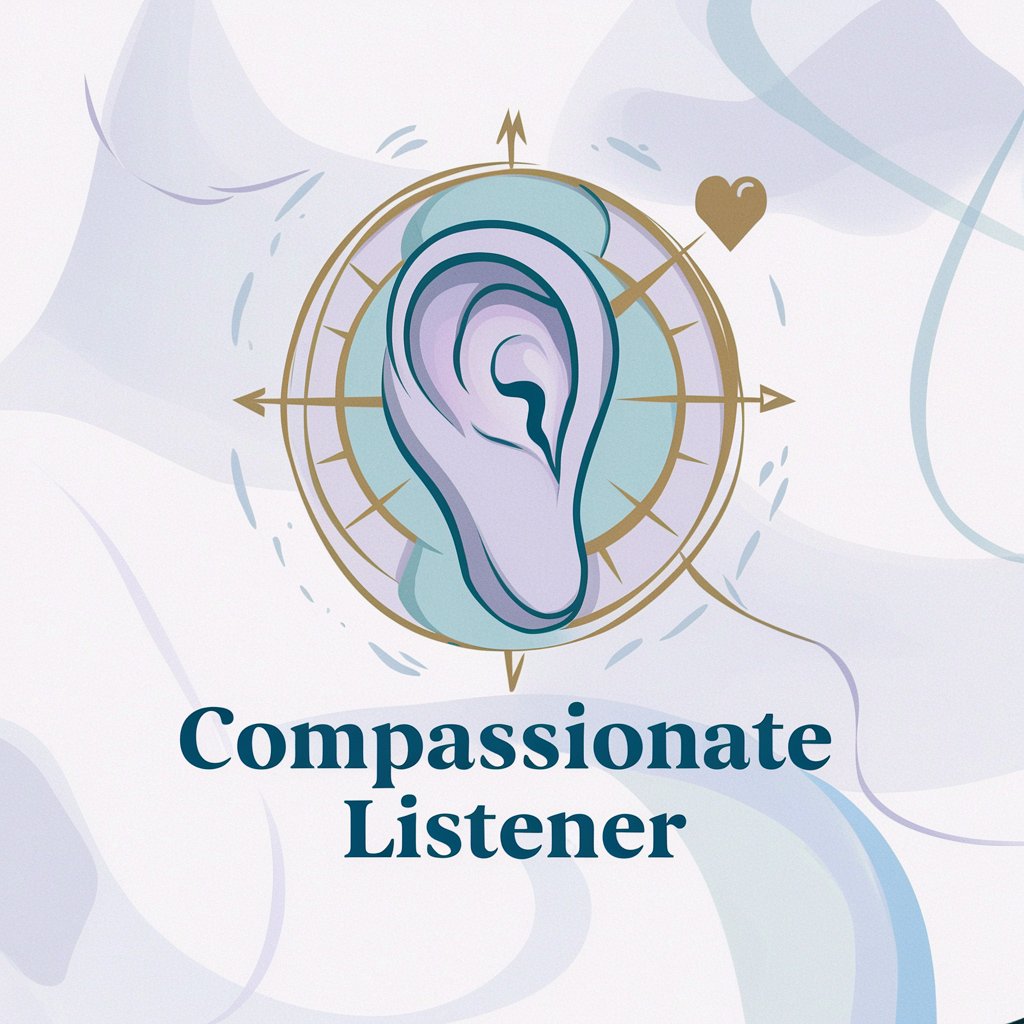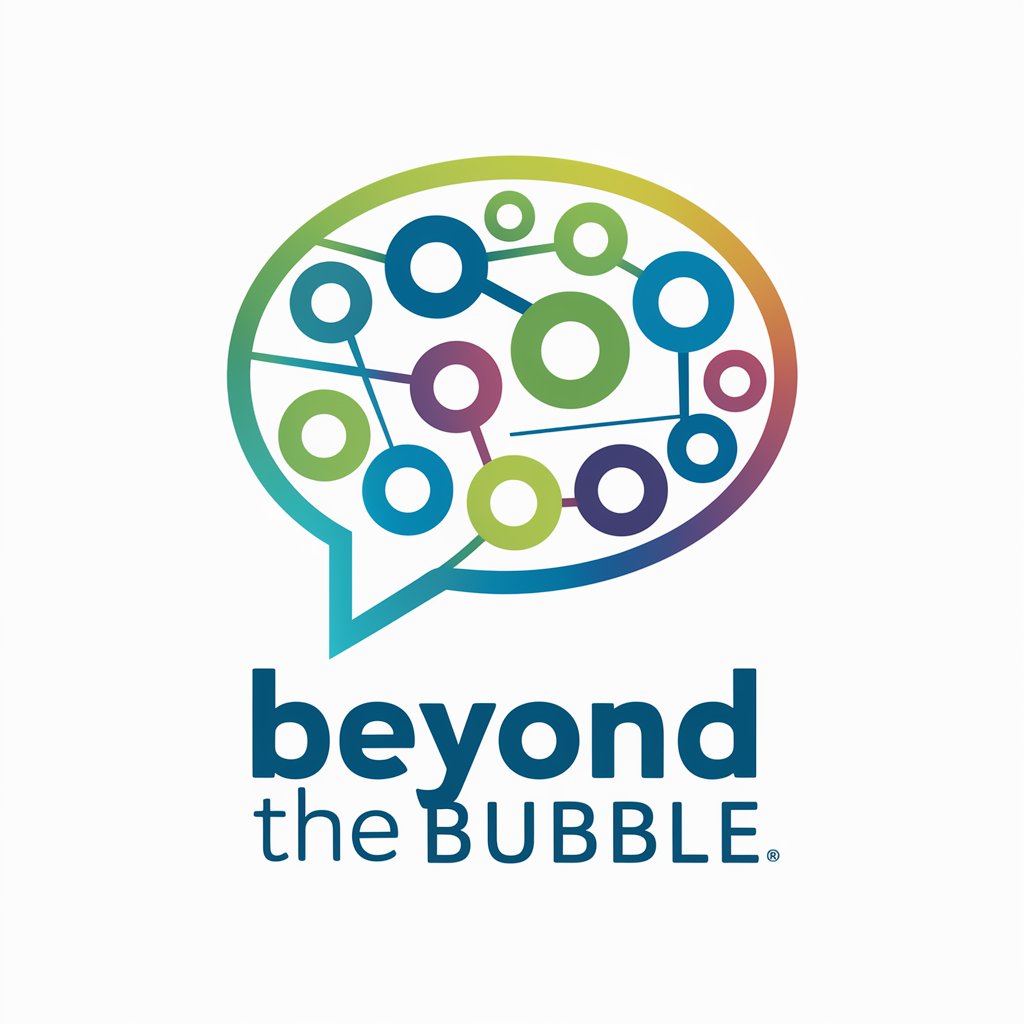10 GPTs for Empathy Practice Powered by AI for Free of 2025
AI GPTs for Empathy Practice are advanced computational tools designed to simulate and foster empathetic communication. Leveraging Generative Pre-trained Transformers, these AI solutions are adept at understanding and processing human emotions, sentiments, and nuances in text or conversation. They are specifically tailored to enhance tasks and topics related to empathy, such as emotional support, mental health counseling, customer service, and educational training. By integrating AI with empathy practice, these tools aim to bridge the gap between technological innovation and human emotional intelligence, providing personalized, sensitive responses in various contexts.
Top 10 GPTs for Empathy Practice are: 非暴力沟通助手,BrightSide Buddy,哄哄模拟器,Compassionate Listener,Cheer her or him up,Wingman Bro Co.,永远爱你,Beyond the Bubble,Mi Amigo,Husband GPT
非暴力沟通助手
Empowering empathetic communication with AI

BrightSide Buddy
Empowering Positive Conversations with AI

哄哄模拟器
Navigate difficult conversations with AI.

Compassionate Listener
Empathy at your fingertips.

Cheer her or him up
Boost emotional intelligence with AI

Wingman Bro Co.
Empowering Love with AI

永远爱你
Empathetic AI for Endless Support

Beyond the Bubble
Broadening Perspectives with AI

Mi Amigo
Your AI Friend for Emotional Support

Husband GPT
Enhancing relationships through AI-driven communication

Key Characteristics and Capabilities of Empathy-Enhanced AI
AI GPTs for Empathy Practice are distinguished by their ability to adapt to a wide range of empathetic interactions, from basic supportive dialogues to complex emotional assessments. Core features include natural language understanding and generation, sentiment analysis, and emotional tone adjustment to align with the user's mood. Specialized functions may also cover language learning for multilingual support, technical troubleshooting with a human touch, advanced web searching for relevant emotional support resources, image creation to support therapeutic storytelling, and data analysis for mood tracking and mental health insights.
Who Benefits from Empathy-Focused AI Tools
These AI tools are beneficial across a broad spectrum of users, including individuals seeking emotional support, mental health professionals looking to augment therapy sessions, customer service agents aiming to provide more personalized care, and educators incorporating emotional intelligence into their curriculum. They are accessible to novices without coding skills through user-friendly interfaces, while offering extensive customization options for developers and tech-savvy professionals in the field of empathy practice.
Try Our other AI GPTs tools for Free
Interactive Coaching
Discover how AI GPTs revolutionize interactive coaching, offering personalized, conversational learning experiences tailored to your pace and preferences.
Lighting Setup
Discover how AI GPTs for Lighting Setup revolutionize lighting design with advanced AI, offering tailored solutions, technical advice, and visual simulations for professionals and enthusiasts alike.
Community Planning
Discover how AI GPTs revolutionize Community Planning with adaptable, intelligent tools for urban development, stakeholder engagement, and data-driven decision-making.
Permaculture Design
Discover AI GPTs for Permaculture Design, innovative tools designed to revolutionize sustainable land use and ecosystem planning with tailored AI solutions.
Eco-Construction
Discover how AI GPTs revolutionize Eco-Construction with sustainable solutions, offering insights, guidelines, and support for energy efficiency and environmental friendliness in building practices.
Poetic Imagery
Discover the transformative power of AI GPTs for Poetic Imagery, tools designed to revolutionize the creation and appreciation of poetry through advanced AI capabilities.
Expanding the Horizons of Empathy with AI
AI GPTs for Empathy Practice not only offer a unique approach to understanding and simulating human emotions but also hold the potential to transform various sectors by integrating empathy at scale. User-friendly interfaces and the ability to meld with existing systems underscore their versatility and potential to make empathetic communication more accessible and effective across different fields.
Frequently Asked Questions
What exactly are AI GPTs for Empathy Practice?
AI GPTs for Empathy Practice are artificial intelligence tools designed to understand, simulate, and engage in empathetic communication, aiding in emotional support, counseling, and other empathy-related tasks.
How do these AI tools understand emotions?
They use natural language processing, sentiment analysis, and emotional recognition algorithms to interpret the emotional content and tone of text or speech, enabling them to respond in emotionally appropriate ways.
Can these AI tools replace human empathy?
While they can simulate empathetic responses, they are not replacements for genuine human empathy. They serve as supplements to enhance emotional understanding and support in various settings.
Are these tools accessible to people without technical skills?
Yes, many of these AI tools are designed with user-friendly interfaces that require no coding knowledge, making them accessible to a wide audience.
How can professionals customize these AI tools for specific needs?
Developers and tech-savvy professionals can use programming interfaces (APIs) and development kits provided by these tools to tailor functionalities, integrate with existing systems, and create bespoke empathy practice applications.
What applications do these AI tools have in mental health?
They can be used for mood tracking, providing therapeutic support, enhancing teletherapy sessions with empathetic bots, and offering immediate, scalable emotional support.
How do these tools handle multiple languages?
Many AI GPTs for Empathy Practice are equipped with multilingual capabilities, allowing them to understand and respond in various languages, making empathy practice accessible across different linguistic backgrounds.
Can these AI tools be integrated into existing platforms?
Yes, with the appropriate APIs and SDKs, these tools can be integrated into existing platforms, such as mental health apps, customer service systems, and educational resources, to enhance their empathetic interaction capabilities.